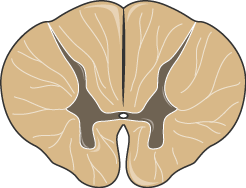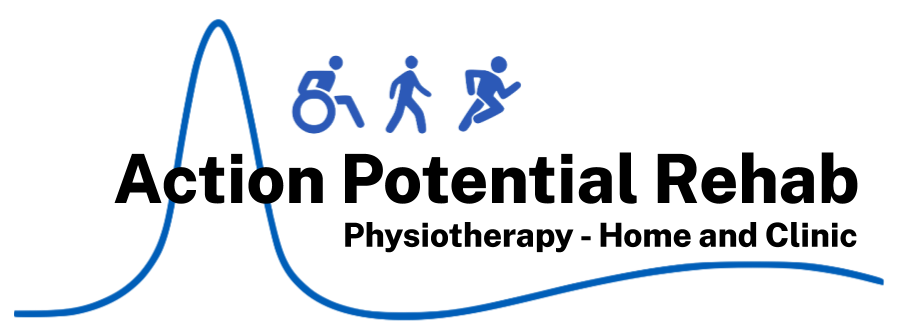Home / Conditions / Transverse Myelitis
Transverse Myelitis

Transverse myelitis is a neurological disorder marked by inflammation of the spinal cord. Transverse myelitis attacks the insulating, protective coating (“myelin”) of our neural pathways, which disrupts the transmission of motor and sensory information that transmits throughout the body. It is this exchange of information that facilitates day-to-day actions, behaviours and impulses.
The parts of the body that are affected depends on the location of injury on the spinal cord. Nerves in the cervical (neck) region control signals to the neck, arms, hands, and diaphragm; those in the thoracic (upper back) region send signals to the torso and some parts of the arms; the lumbar (mid-back) nerves control signals to the hips and legs; and the sacral nerves (lowest segment of the spinal cord) transmit signals to the groin, toes, and some parts of the legs. Damage at one segment not only affect’s function at that site, but possibly also at any site located below it.
A common symptom of transverse myelitis is the sudden disruption of spinal cord function. This may entail an acute onset of pain in the lower back or muscle weakness, but with time may progress to a loss of bowel control, urinary retention or even paralysis. Symptoms vary in permanency, resulting impairment and recurrence.
Your physiotherapy treatment will depend on the severity, nature, and location of the spinal injury, and your specific needs and goals.
Physiotherapy interventions maybe needed for assistance with:
- Respiratory care
- Skin care and DVT (blood clot) prevention
- Contracture prevention or treatment
- Sitting balance retraining
- Transfers training
- Resistance (strength) training
- Early standing initiation
- Assessment for equipment, e.g. splints
- Walking (gait) training
- Learning techniques to cope with altered sensation
- Stretching programs to maintain your flexibility
Physiotherapy for those with transverse myelitis can be effective in reducing spasticity, increasing strength and flexibility and improving coordination. Our therapists can also recommend techniques to help you cope with day-to-day tasks, as well as advise on and prescribe assistive equipment (such as braces, walkers, or wheelchairs).
Image references:
- Patrick J. Lynch; illustrator; C. Carl Jaffe; MD; cardiologist synpic46000.jpg TBI – Grading Traumatic Brain Injury
This website provides general information about our services and conditions treated. It is not intended to be used for self-assessment or treatment, and is not a substitute for an individualized treatment plan developed by a registered physiotherapist.
By the Action Potential Rehabilitation Staff
Page last reviewed: June 2, 2023
